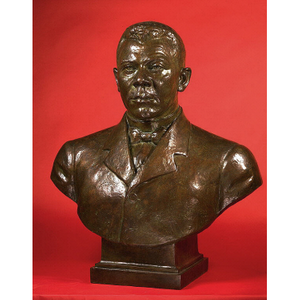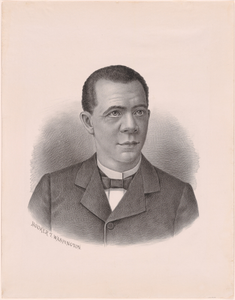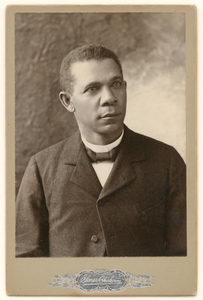Description
In the face of racial hatred, segregation, and disenfranchisement, it was unrealistic, Booker T. Washington contended, to expect African Americans to gain entry into America's white-collar professions. Instead, he suggested they establish themselves as a skilled and indispensable laboring class. With that accomplished, he believed, racial discrimination would gradually disappear. In 1881 Washington put this theory to the test, becoming the director of the newly created Tuskegee Institute in Alabama. As the school grew, he became viewed as the nation's leading spokesman for African Americans. A magnetic speaker and the author of ten books, including a moving autobiography, Up from Slavery (1901), Washington worked closely with such national leaders as Theodore Roosevelt and Andrew Carnegie. Although well respected, he attracted many critics, including W. E. B. Du Bois, who contended that his "get along" philosophy undermined the quest for racial equality.
Image
Gelatin Silver Print
National Portrait Gallery, Smithsonian Institution
Record Contributed By
National Portrait GalleryRecord Harvested From
Smithsonian InstitutionKeywords
- Administrator
- Administrators
- Bedou, Arthur P
- Booker T. Washington
- Chair
- Chairs
- Costume
- Crowd
- Education
- Educator
- Educators
- Equipment
- Exterior
- Furnishings
- Furniture
- Hat
- Hats
- Headgear
- Home Furnishings
- Human Figures
- Institute
- Lecturer
- Literature
- Male
- Men
- Podium
- Portrait
- Portraits
- Reformer
- Reformers
- Seating
- Social Reformer
- Society And Social Change
- Teacher
- Washington, Booker T
- Writer
- Writers





















